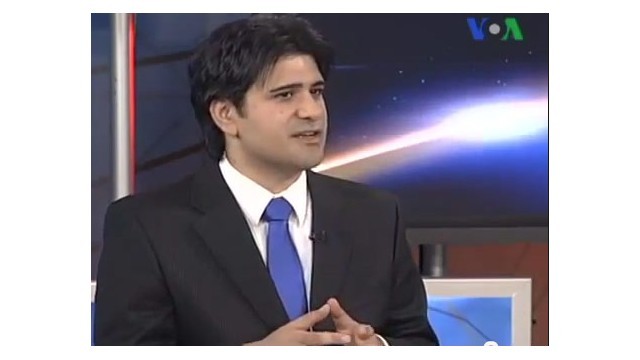Threats to Strait of Hormuz demonstrate Iran’s desperation
الدكتور مجيد رفيع زاده: تهديدات إيران بإغلاق مضيق هيرمز تبين يأسها
Dr. Majid Rafizadeh/Arab News/July 15/18
The Iranian authorities are escalating their confrontational rhetoric. Iran’s state-controlled Persian news outlets have been putting great emphasis on the nation’s strategic advantage and superiority over the Gulf passageway, the Strait of Hormuz.
In terms of their strategic influence, Iranian leaders are also ratcheting up their threats to block the Strait of Hormuz. Mohammad Ali Jafari, the Islamic Revolutionary Guard Corps commander, was recently quoted by the semi-official Tasnim News Agency as saying: “We will make the enemy understand that either everyone can use the Strait of Hormuz or no one.”
Although some scholars, policy analysts and politicians argue that these threats are hollow, the issue should be taken seriously. The Iranian regime is not a rational state actor, but a revolutionary one. The threats are precarious not only for the Middle East but also for the rest of the world, due to the fact that roughly one-third of global oil exports pass through the Strait of Hormuz.
Closing one of the world’s most important naval passageways would drastically disrupt the global oil market. Most likely, oil and gas prices would skyrocket to unprecedented levels, which would impact the costs of other commodities around the world. Subsequently, this would create a substantial crisis in the global financial system and negatively impact people across the world.
More importantly, closing the Strait of Hormuz would be significantly damaging to the national security interests of several countries in the region — including the UAE, Saudi Arabia, Bahrain, Qatar and Kuwait — because of the direct impact it would have on their economic sector.
This is not the first time that the Iranian leaders have made such dangerous threats. In fact, since the establishment of the Islamic Republic in 1979, the regime has frequently threatened to block or cause serious damage to the shipment of oil through the Strait of Hormuz.
Threatening to block one of the world’s most critical passages has been a core pillar of Iran’s foreign policy. Almost four decades of the Islamic Republic reveals that the theocratic establishment has historically threatened to choke off the Strait of Hormuz when it could not achieve or further advance its revolutionary, ideological and political objectives through other means, including hard power and interventions in the domestic affairs of other nations. For example, Iran’s threats to close the strait escalated dramatically during the Iran-Iraq War due to the fact Tehran was incapable of defeating or conquering Iraq through its military, including the use of its air force, the national army and the IRGC.
Iran regime must be stopped from endangering the world economy and stability of the region by its frequent threats to close the Strait of Hormuz.
In addition, when the Iranian regime is seeking to obtain concessions from global powers or trying to force them to change their policies in favor of Iran, Tehran again resorts to such threats. For instance, during the Barack Obama presidency, and specifically during the negotiations to sign the Joint Comprehensive Plan of Action, IRGC leaders strongly threatened to shut off the strait. The Obama administration and European powers then made significant economic and political concessions to Tehran as part of the nuclear deal.
In other words, from the Iranian regime’s perspective, threatening to close the Strait of Hormuz is a powerful tool that can be used to force other nations into submitting to its demands, as well as altering their policies in order to appease the Islamic Republic. Furthermore, it is worth noting that, whenever Iranian leaders use harsh rhetoric with respect to the Strait of Hormuz, oil prices go up for a short period as a result of fears generated by the crisis. This has helped the regime to gain more revenues from its oil exports. For instance, when Iran threatened to close Strait of Hormuz in 2016, crude oil prices went up more than 3 percent.
More importantly, the Iranian regime is currently desperate because President Donald Trump pulled out of the nuclear deal and ordered the re-imposition of US sanctions against Tehran. Iranian leaders are fretting over the primary and secondary sanctions. The deadline is approaching, as some of the major sanctions will be re-imposed on Aug. 6. In addition, the regime is critically concerned because the Trump administration is pressuring the international community to abandon Iran’s oil exports, and it is working with other regional powers, including Saudi Arabia, to contain Tehran economically.
In fact, Iranian leaders are perturbed and unsettled to such an extent that the so-called moderate politicians are using confrontational rhetoric similar to the harsh language used by the hard-liners, such as the IRGC leaders. Iranian President Hassan Rouhani has recently threatened that, if other countries do not buy oil from Iran, no other countries in the Gulf will be allowed to ship oil through the strait.
The Iranian regime must be stopped from endangering the world economy and stability of the region by its frequent threats to close the Strait of Hormuz.
*Dr. Majid Rafizadeh is a Harvard-educated Iranian-American political scientist. He is a leading expert on Iran and US foreign policy, a businessman and president of the International American Council. Twitter: @Dr_Rafizadeh























